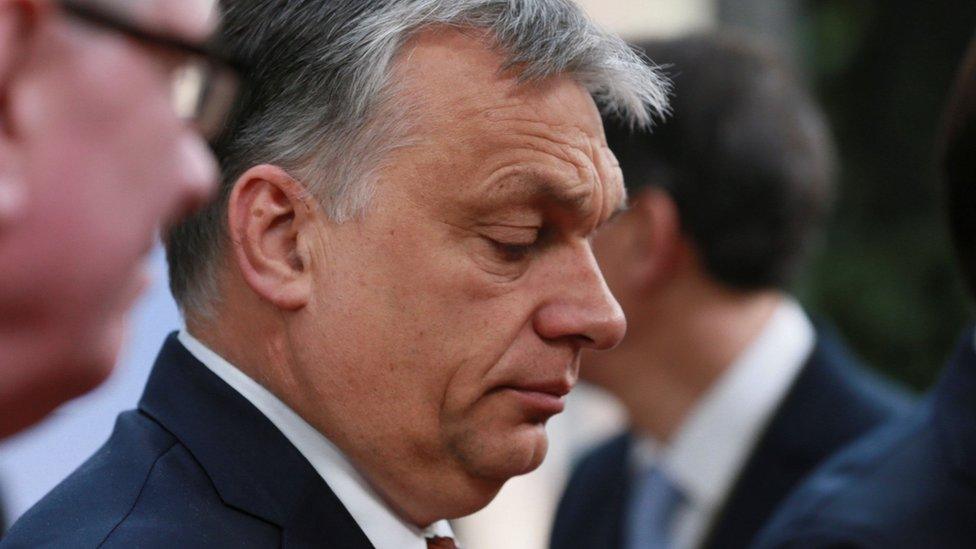Hungary education law: Orban 'to meet EU demands'
- Published

Mr Orban was in Brussels for a meeting of EU leaders to agree Brexit guidelines
Hungarian PM Viktor Orban will comply with EU demands over an education law that could close a top university, the EU's centre-right political group says.
The bloc threatened legal action over the law that could close the Central European University (CEU) in Budapest, founded by billionaire George Soros.
Mr Orban has condemned Mr Soros as an "American financial speculator".
The European Peoples Party [EPP] group, which includes Mr Orban's Fidesz party, summoned him to a meeting on the issue.
"Prime Minister Orban committed himself in the EPP council to follow and implement all the demands of the European Commission within the deadline set by the commission," said Siegfried Muresan, a spokesman for EPP President Joseph Daul.
Mr Orban, who has angered many in the EU with his hardline stance on asylum seekers, has not yet commented and a spokeswoman declined to say what he had told the meeting.
The EPP has threatened Fidesz with possible expulsion over the issue.

The education law has drawn large protests in Budapest and around the world
In a statement, Mr Daul said "a clear message" had been sent to Mr Orban and the Fidesz party "that we will not accept that any basic freedoms are restricted or that the rule of law is disregarded".
"The EPP demanded from Fidesz and from the Hungarian authorities that they take all necessary steps to comply with the commission's request. Prime Minister Orban has reassured the EPP that Hungary will act accordingly," he added.
The Hungarian government's Higher Education Act would mean the CEU in Budapest would be unable to award diplomas because it is registered in the US.
But the European Commission ruled that the law was not compatible with the EU Charter of Fundamental Rights.
Last Wednesday it gave the government one month to adapt the law or face being taken to court.
The law has also led to some of the biggest protests in Hungary since Mr Orban came to power.
Thousands have attended demonstrations since the legislation was pushed through parliament earlier this month.
The CEU is considered a beacon of liberal values and is ranked among the top 200 universities in the world in eight disciplines.

The Central European University

Founded to "resuscitate and revive intellectual freedom" in parts of Europe that had endured the "horrific ideologies" of communism and fascism
Occupies a building that began as an aristocrat's palace before becoming state-owned offices for a planned socialist economy
Has 1,440 students - 335 from Hungary and the rest from 107 other countries
Presents itself as a champion of free speech, with links to universities in Russia, Kyrgyzstan, Georgia and Kazakhstan

- Published22 April 2017

- Published12 April 2017

- Published10 April 2017
